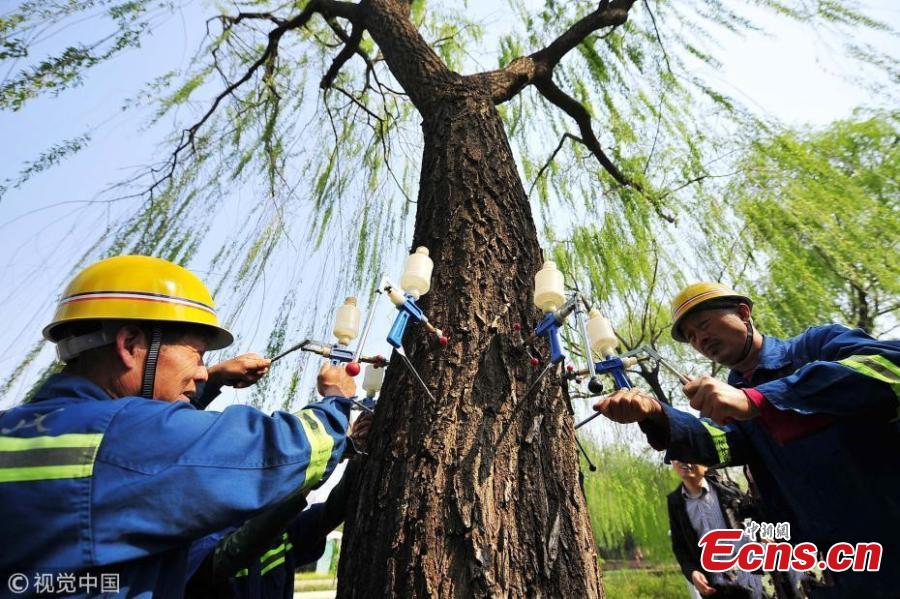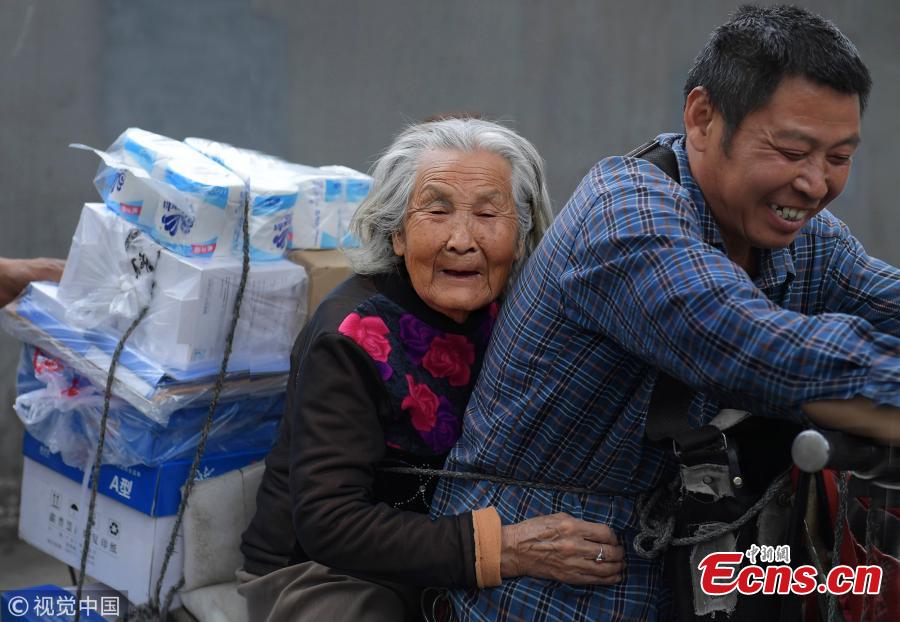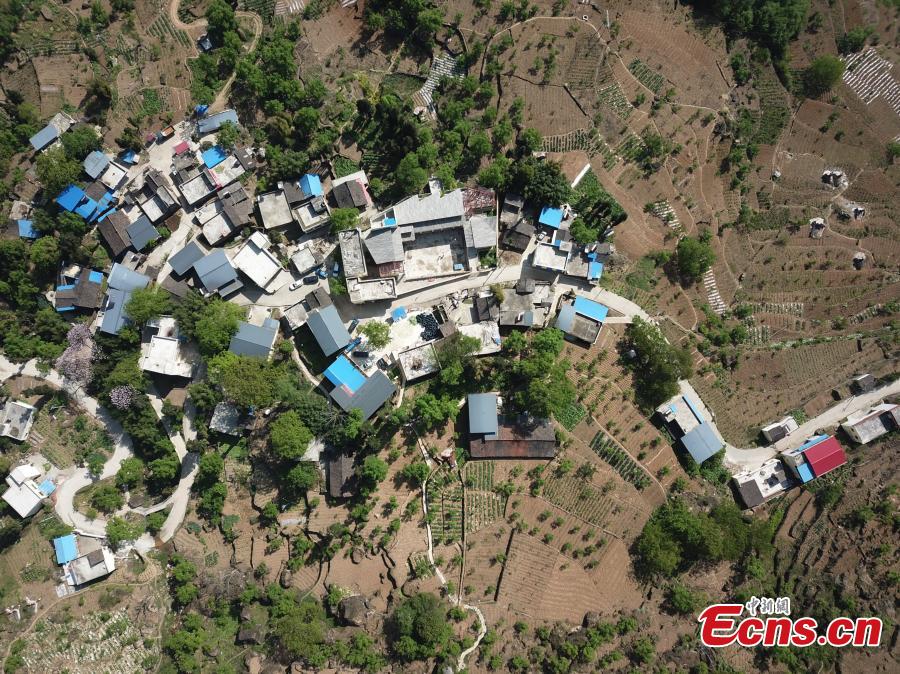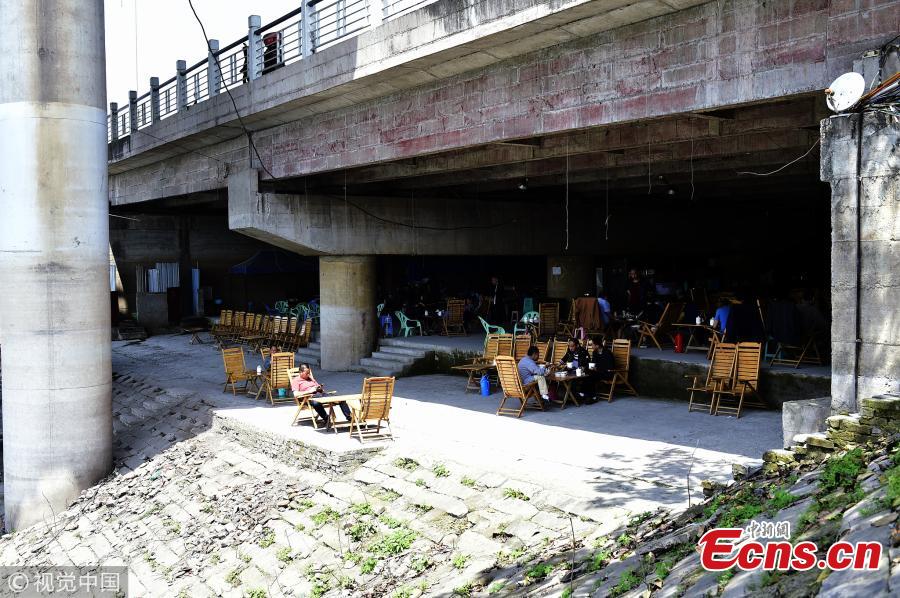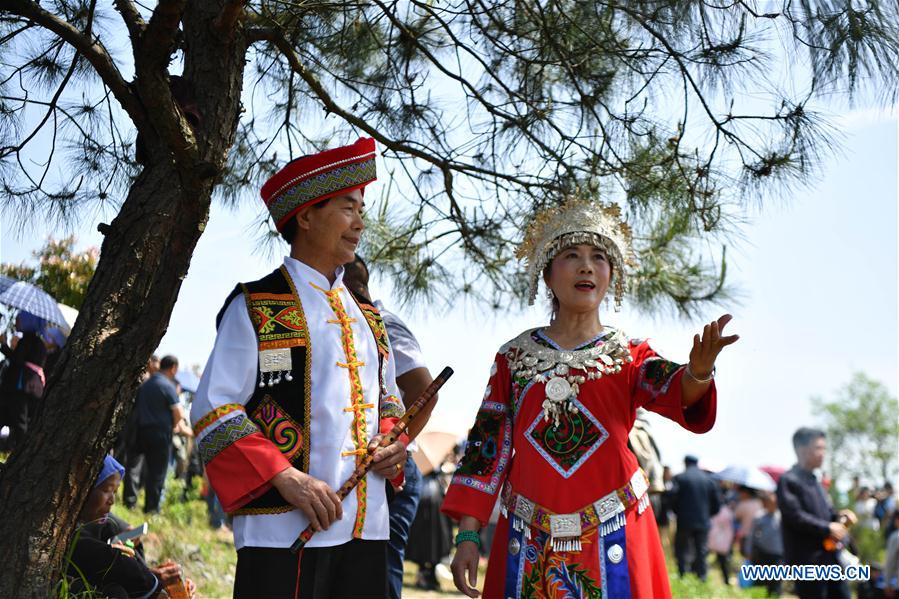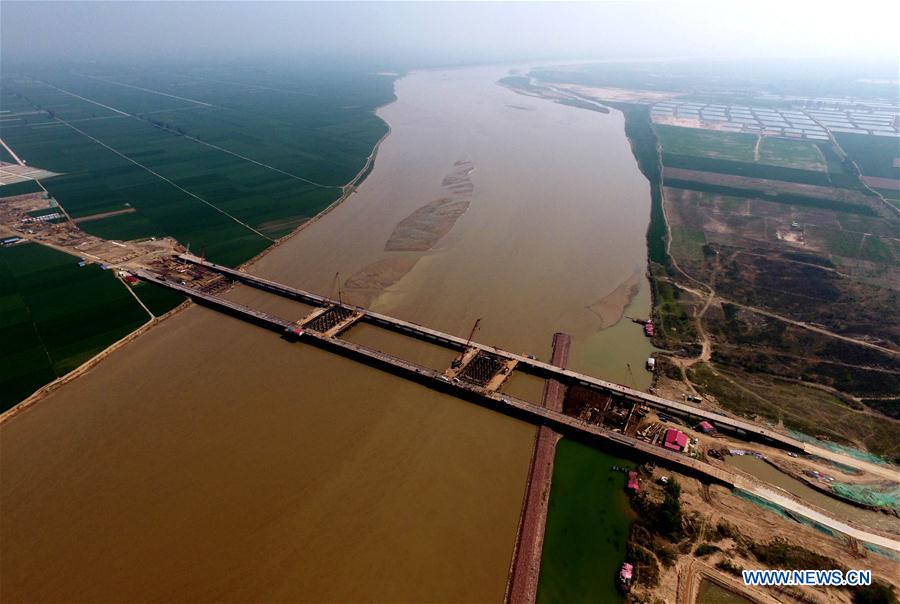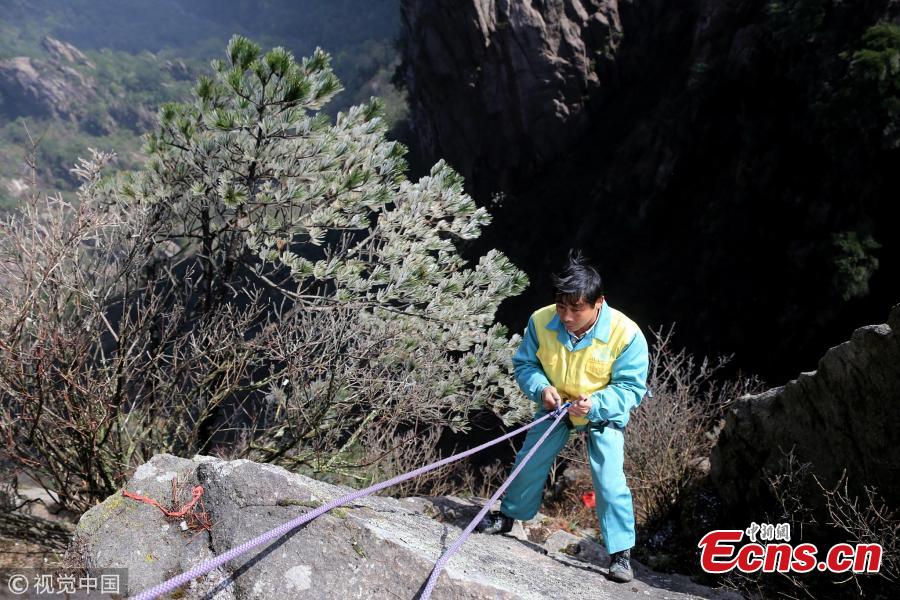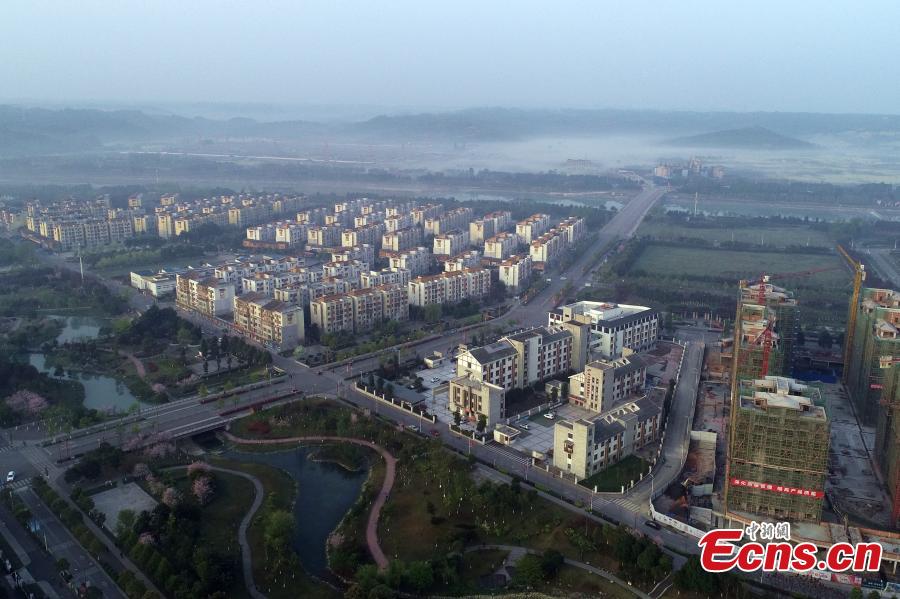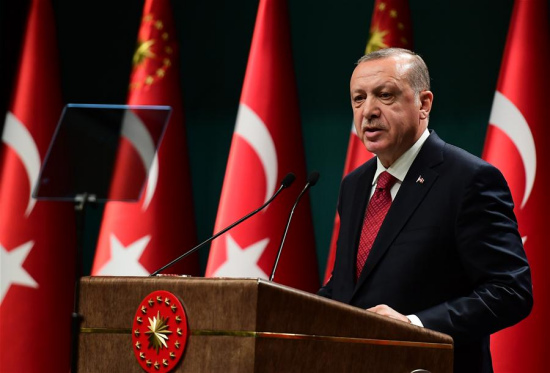
Turkish President Recep Tayyip Erdogan speaks during a press conference at Presidential Palace in Ankara, Turkey, on April 18, 2018. (Xinhua/Mustafa Kaya)
Turkish President Recep Tayyip Erdogan announced Wednesday that the presidential and parliamentary elections will be brought forward to June 24, 2018 from November 2019, in order to make a swift shift to an executive presidency.
"After in-depth consultations, we have decided to hold elections on June 24," Erdogan said at his presidential complex after a meeting with his nationalist ally in parliament Devlet Bahceli, who floated the idea of early polls a day ago, dropping a bombshell in political circles.
The Turkish president explained the necessity of the snap elections, citing "uncertainties" in the region and "the cross-border operation in Syria."
"We think that it is essential and urgent to make a switch to an executive presidency," he said after the meeting, which was also attended by Prime minister Binali Yildirim and senior members of his ruling Justice and Development Party (AKP).
For his part, Bahceli said his Nationalist Movement Party (MHP) would back any move for an early election, expressing his support for Erdogan's candidacy to hold the helm of the state.
The Turkish government has denied the speculation that it intends to abolish the post of prime minister and formally enshrine executive powers in the president's office. In its almost 16 years in power, the AKP has never called early elections.
Even before the formal shift in Turkey's power system, Erdogan has been running the country as its sole top leader, exercising extraordinary powers granted him following a failed coup attempt almost two years ago.
He has overseen a crackdown on political opponents and sent army into northern Syria against U.S.-backed Kurdish militants. These moves have won him the support of Turkish nationalists, but soured Turkey's ties with the U.S. and the European Union.
Under the new presidential system in Turkey, the president will be able to prepare the budget, dissolve the parliament and appoint high-level officials, including ministers and some top judges, as well as to declare a state of emergency, a power currently held by the government.
Erdogan only narrowly won the referendum held last April that approved an empowered presidency, while most of his parliamentary landslide victories were secured with less than 50-percent backing, prompting him to demand the resignation from senior members of his party, such as the mayors of Istanbul and Ankara.
In fact, for a first-round victory in the next presidential ballot, he will need a clear majority.
According to some public opinion surveys published in recent months, Erdogan, still the only prominent candidate in the upcoming presidential elections, has yet to guarantee a 50-percent support needed for an election win in the first round amid growing warnings about the vulnerabilities in the Turkish economy.
Erdogan's main rival in the election could be Meral Aksener, leader of right-wing Iyi Party (Good Party), who is eager to challenge the Turkish leader who has been ruling the country since 2002.
But the snag for her Iyi Party is that it is a new political movement and could be disqualified by electoral authorities because of procedural reasons.
The main opposition People's Republican Party (CHP) also accepted the challenge of a snap election.
"We are ready and we will win. 2018 will be the year of democracy in Turkey," Kemal Kilicdaroglu, head of CHP, said after Erdogan's announcement.
CHP will seek to present a candidate to challenge the Turkish strongman.
"We have a critical period ahead of us, and we will see intense meetings between opposition movements to seek for possible alliance and for an efficient candidate that would present a challenge for Erdogan," Deniz Zeyrek, a political commentator, told Xinhua.
"No one I guess was waiting for such an early date, so the opposition has to hurry in order to keep pace," he pointed out.
While Turkey has enjoyed a spectacular 7.4-percent GDP growth last year, experts said the widening current deficit and the persistent double-digit inflation are signs of overheating.
The Turkish lira has plummeted in recent weeks against the U.S. dollar and euro, worrying both citizens and investors. But the lira rebounded on Wednesday after Erdogan's announcement to hold snap elections.
The early elections, which are scheduled to be held in a state of emergency which has come into force since the failed military coup in July 2016, will give Erdogan a chance to extend his period in power with a new five-year mandate, after already serving 15 years in power as a prime minister first and then president.









